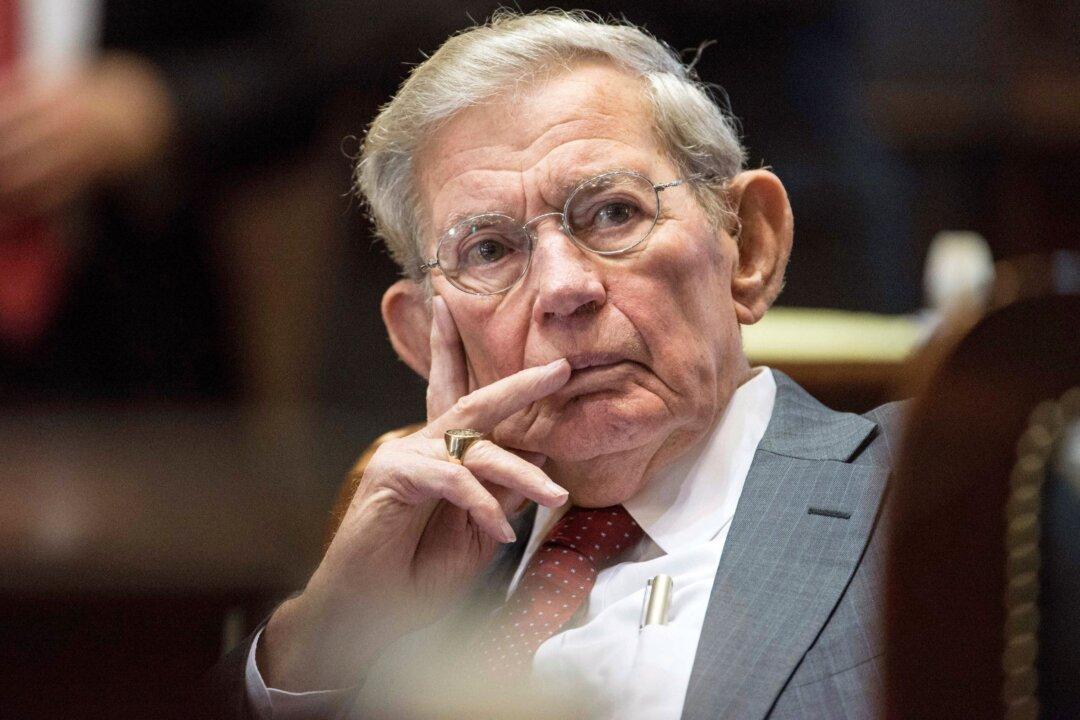COLUMBIA, S.C.—State Sen. Hugh Leatherman, South Carolina’s oldest and most powerful state lawmaker, died Friday at the age of 90.
Leatherman died at his home in Florence, his office said, after being diagnosed with an inoperable cancer.

COLUMBIA, S.C.—State Sen. Hugh Leatherman, South Carolina’s oldest and most powerful state lawmaker, died Friday at the age of 90.
Leatherman died at his home in Florence, his office said, after being diagnosed with an inoperable cancer.